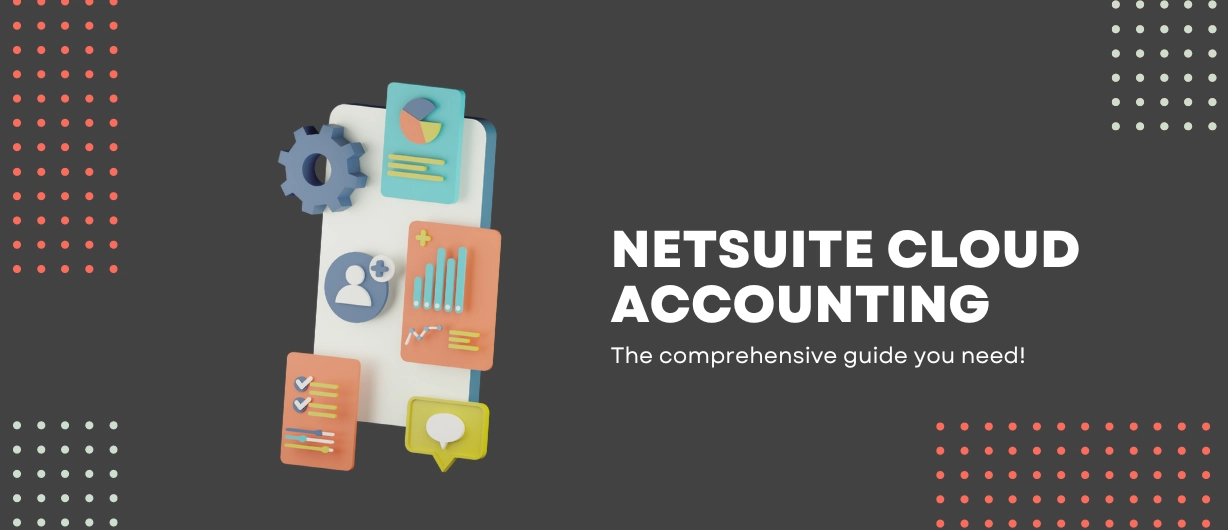June 24 2025 | By Raza Agha | 6 minutes Read

What is NetSuite?
Why Are Startups Considering NetSuite?
Benefits of NetSuite for Small Business Owners
1. All in One Platform
2. Real-Time Data
3. Scalability
4. Automation
5. Compliance and Security
Is NetSuite Good for Small Businesses?
How Much Does NetSuite Cost for Small Business?
Things to Consider Before Choosing NetSuite
The Final Verdict: Is It Worth the Cost?
How Can We Help?
Running a startup or a small business is all about making smart decisions, especially when it comes to spending money. Every dollar counts and before investing in tools, it’s normal to question the benefits or necessity of the major expense.
This is why many small businesses and startups remain hesitant when it comes to investing in software that may or may not work for them.
One such choice that many businesses come across is NetSuite, a cloud-based enterprise resource planning system (ERP). And the big question arises again: Is NetSuite for startups and small businesses really worth the cost?
Let’s find out in this blog below.

Source: pointstar-consulting.com
NetSuite is essentially an all-in-one cloud platform that allows businesses to manage different parts of operations such as accounting, finance, customer relationship management (CRM), inventory, and more. Because it’s cloud-based, NetSuite lets business owners access it from anywhere, and it keeps everything securely stored in one place.
However, NetSuite is primarily known for helping large-scale companies stay organized and operate efficiently. It is only recently that more and small startups and small businesses have started to consider NetSuite to manage their operations and growth.
Startups often start small, using simple tools like Xero, spreadsheets, QuickBooks, or entry-level CRM software. These tools work well in the beginning, but as business starts to grow, these systems start to look insufficient.
Data gets lost, systems remain in silos, and you end up spending more time managing the software than growing your business, in short: things become messy.
NetSuite for startups offers an upgrade from these basic tools. It provides one platform where you can manage accounting, sales, inventory, payroll, and reporting all in one place. This means less switching between apps and more time spent focusing on your business goals.
Are you a small business owner looking to make your life easier? Here’s how NetSuite can help you:
With NetSuite, you no longer need five different tools to juggle accounting, finance, CRM, inventory etc. Instead, NetSuite for startups allows you to manage everything through one clean dashboard.
You get real-time data about your business performance through NetSuite. The cloud-based platform offers insights into sales, expenses, customer data, and trends for you to make smarter decisions.
One of the biggest challenges for startups is outgrowing their software. NetSuite on the other hand is built to scale. As your business grows, NetSuite grows with you. So, now you won’t need to replace the software once you expand.
NetSuite automates everyday tasks like payroll, invoicing, inventory updates, etc. That means fewer manual errors and more time to focus on strategy.
With built-in tools for compliance and secure cloud hosting, your data is protected, and your business stays aligned with local financial regulations. No more worrying about losing confidential data or facing the consequences of cyber threats.
That’s a common question that many startups and small business owners ask before investing in NetSuite. The answer: Yes, but with a few small considerations.
NetSuite is a reliable and powerful cloud-based tool that can help your business operate more efficiently and grow faster. However, the learning curve and cost can be a hurdle for some business owners, especially in the early stages.
So, while NetSuite for small business operations can be a game-changer, it’s essential to make sure that it fits your current needs and budget.
Now, here’s the important bit: money.
So, how much does NetSuite cost for a small business looking to invest in it? That depends on your setup.
NetSuite pricing isn’t fixed and often varies depending on the number of users, the modules you require, and how much customization is needed. On average, small businesses can expect to spend anywhere from $1,000 to $5,000 per month including licensing and implementation.
Now this may sound like a lot, especially if you’re considering NetSuite for startup. But if you consider the cost of using multiple different systems for accounting, inventory, CRM, and HR, the price might actually balance out.
NetSuite also offers a program specifically for early-stage startups called NetSuite Startup. This allows startups to benefit from discounted packages of NetSuite to support growth in the initial stages.
Before jumping in, take a moment to ask yourself these questions:
If the answer to most of the questions is yes, then investing in NetSuite for small business or startup is your next step.
But if you’re just starting out, have limited resources, and simple processes, you can probably wait it out till your startup really needs what NetSuite has to offer.
If your business is growing fast and you need a powerful system to manage everything in one place then yes, NetSuite for small business is absolutely worth it. The value you get for automation, security, accuracy, and efficiency can easily make up for the hefty price tag.
However, if you’re a small operation, you may want to stick to low-cost and simpler tools before upgrading to NetSuite.
NetSuite for startups is great but only if implemented the right way. This is why, at Monily, we have NetSuite accounting services experts who can help you make the most of this powerful tool.
If you have decided to invest in NetSuite for small business accounting and bookkeeping, then let us assist you in fully benefiting from it. Book a consultation with us now and see how we can take your business to the next level with NetSuite solutions.
Subscribe for business tips, tax updates, financial fundamentals and more.
MORE BLOGS

Understanding the varying types of tax forms can leave even expert accountants scratching their heads. Two of the documents that confuse many businesspeople are the W2 […]
Learn More →
It can be quite hard to trust software to do all your accounting for you right off the bat. All new additions to your workflow take […]
Learn More →
We already detailed in a previous blog here, what NetSuite is all about. In short, it is a cloud-based suite of management tools that, on a […]
Learn More →